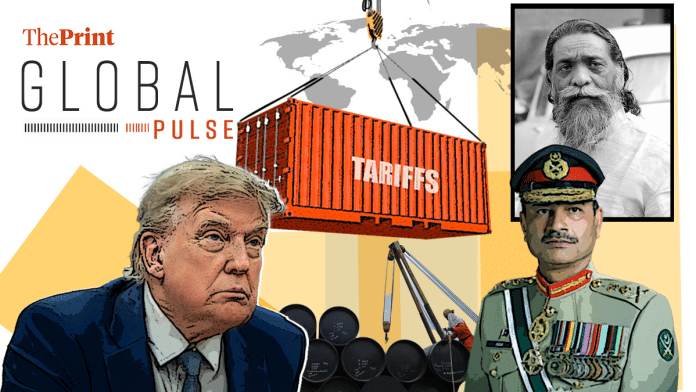New Delhi: By threatening to raise tariffs on India over its continued purchase of Russian oil, President Donald Trump has taken steps that his predecessors were “reluctant” to “for fear of escalation and economic fallout”, writes the Washington Post in an opinion article. Now, Trump can potentially do the same thing to China, says the Post.
“The inability of Western sanctions to cripple Russia’s economy has been one of the most persistent frustrations since Putin’s full-scale invasion of Ukraine 3½ years ago. Russia’s economy actually grew by more than 4 percent last year and has been estimated to grow again this year, albeit more slowly,” says the article.
“Putin has weathered sanctions by shifting to a wartime footing and developing a network of new trading partners for oil and energy exports, relying on a shadow shipping fleet. Its principal customers are China and India.”
Since 2023, India has been the largest importer of Russian crude oil. Last year, 89 million tonnes were imported which is “50 per cent more than China”, report James Politi and Andres Scipani in the Financial Times. And the Indian government doesn’t appear to have taken too kindly to Trump’s announcement on Truth Social, they write.
“Randhir Jaiswal, spokesperson for India’s foreign ministry, said in response to Trump’s Truth post: ‘The targeting of India is unjustified and unreasonable’,” according to the FT.
“India began importing from Russia because traditional supplies were diverted to Europe after the outbreak of the [Ukraine] conflict,” Jaiswal has also been quoted as saying. “The United States at that time actively encouraged such imports for strengthening global energy markets stability.”
Meanwhile, The Economist reports on Pakistani army chief field marshal Asim Munir and his growing hold on power since May, and also analyses a “shift in American foreign policy that affects India, China and the Middle East.”
The all-powerful army chief wants to “bring India to the negotiating table”, the report says. While The Economist does not quote the Pakistani army chief, it has quoted a military spokesperson in the report.
“Narendra Modi, India’s prime minister, is determined to resist and has vowed to respond to any more terrorist attacks with further military action,” says the report.
“Asked how Pakistan would react to that, its military spokesman says it would begin by striking deeper within India. ‘We’ll start from the east,’ he says,” the report adds. “They also need to understand that they can be hit everywhere.”
“The field marshal’s grip on power may have increased since May. But so too have the risks of a bigger clash between South Asia’s nuclear strongmen” is The Economist’s ominous conclusion.
The Guardian also places Trump’s threat to raise tariff on India front and centre, and said the “whiplash” it has caused in Delhi has been “palpable”.
“It is widely agreed among analysts that Modi has been put in an unenviable position by Trump; either acquiesce to Trump’s demands and see loss of face domestically or reject them and face sky-high tariffs – and possibly other punitive actions – that would cripple the Indian economy,” the report notes.
The BBC looks at the life of Shibu Soren, the former Jharkhand chief minister who died at the age of 81.
“He founded the JMM in 1973 with the main objective to carve out a separate state for tribespeople from Bihar’s southern districts,” says the report. “In 2004, he became the federal coal minister in the Congress party’s cabinet but quit a few months later, after he was convicted in a murder case.”
(Edited by Ajeet Tiwari)
Also Read: Global media dissects fractures in India-US ties & New Delhi’s ‘great-power delusions’






